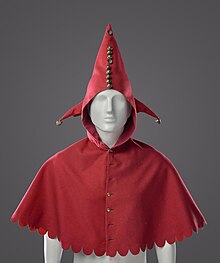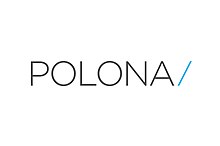GLAM/Newsletter/July 2023/Contents/Poland report
|
EU GLAM Coordinators; WikiMatejko; Polona; internship program
5th meeting of EU GLAM Coordinators

On July 11, 2023, the meeting of European GLAM-Wiki coordinators took place. Kamila Neuman, together with Michelle van Lanschot from Wikimedia Netherlands and Giovanna Fontenelle from Wikimedia Foundation, organized the fifth meeting, which aims to facilitate knowledge and experience exchange in the field of collaborations with cultural institutions in Europe. The main theme of the meeting was addressing knowledge equity in the GLAM sector. Kelly Foster, representing the Whose Knowledge campaign and a board member of Wikimedia UK, spoke about Wikimedia projects focused on restoring knowledge about marginalized communities, particularly those based on skin color or origin.
When we examine the narratives built on art collection holdings, it becomes evident that different communities have been marginalized, and their voices systematically excluded from historical records, cultural heritage, and institutional collections. This exclusion often stems from historical structures of power, discrimination, and biases.
Therefore, one of the main goals of the Wikimedia Movement Strategy for 2030 is to focus on knowledge and communities that have been overlooked and excluded by structures of power and privilege.
Preparations for WikiMatejko editing project with MNK

Preparations are underway for the WikiMatejko editing project, related to the Jan Matejko exhibition at The National Museum in Krakow. The team of Museum's employees, along with the Wikipedian in Resident and the intern from Open Culture WMPL, is developing the narrative for the event. Together, we are considering how to expand the content through objects and historical-biographical threads to promote knowledge about the artist and his work. In September, we will invite volunteers to the opening event of the project, scheduled for October 14, 2023.
Continuation of the wikiresidency at Polona

With the beginning of August, the wikiresidency at the National Library in Warsaw will continue. We are very excited about this because it is one of the longest-running wikiresidencies among all the GLAM-Wiki collaborations with Polish cultural institutions. We would like to remind you that Wojciech Szczęsny has been the Wikimedian in Residence at Polona for 3 years now. Polona is the largest Polish digital library, housing around 3.7 million items, and it was created by the National Library. It primarily contains collections from the National Library and 20 other institutions.
As part of the collaboration, the Wikimedian in Residence uploaded a record-breaking number of almost 800,000 illustrations, which enrich many articles on Wikipedia, including those about Stanisław Wyspiański and Aleksander Fredro. The monthly number of file views is approximately 1.5-2.3 million. The wikiresidency also resulted in over 20,000 edits on Wikimedia Commons and over 10,000 edits on Wikipedia.
In the new reading rooms of the National Library in Warsaw, the exhibition "Hrabia Fredro" will be ongoing throughout August. This is a unique opportunity to see not only manuscripts, graphics, photographs, and documents related to Aleksander Fredro stored in the National Library but also personal memorabilia preserved by the writer's family, such as medals, seals, and even his own armchair.
Continuation of Practice in Culture Program
In July, we are also continuing our collaboration with the National Centre for Culture as part of the Practice in Culture Program. This means that the Open Culture area at Wikimedia Poland will be supported by two interns who will delve into the details of Wikimedia projects and GLAM-Wiki collaborations for a period of three months.
Kamila Neuman, the Open Culture Manager, expressed her excitement about the continuation of the internship program within the framework of the Practice in Culture Program: The experience gained from the previous spring internships showed the value of investing time and energy in working with young people. They contribute to the Association's work significantly, but what is particularly important is that they immerse themselves in Wikimedia projects and engage in enhancing the quality of free knowledge about culture and art.

